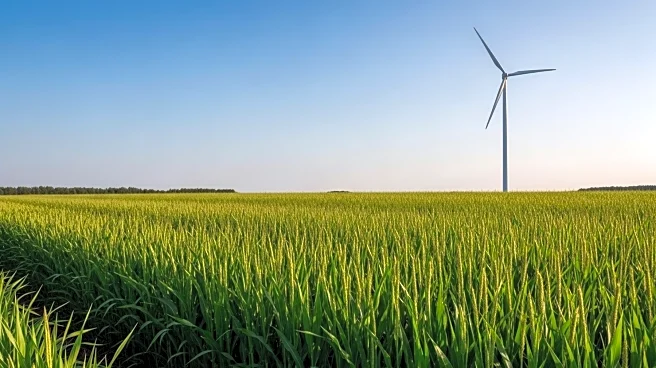What is the story about?
What's Happening?
A new report from the nova-Institute think tank has highlighted the benefits of using first-generation agricultural biomass, such as cereals, sugar, and oil plants, for producing bio-based energy and materials in Europe. The report, commissioned by the European Bioeconomy Alliance (EUBA), emphasizes the positive impacts on food security, biodiversity, agriculture, and climate-change mitigation. The EUBA is a coalition of 16 organizations focused on promoting the bioeconomy in Europe. The report aims to dispel myths surrounding the use of first-generation biomass and advocates for its role in achieving a sustainable bioeconomy.
Why It's Important?
The findings of the nova-Institute report are significant as they challenge misconceptions about first-generation agricultural biomass, which is often criticized for competing with food production. By demonstrating its benefits, the report supports the bioeconomy as a viable solution for sustainable development. This has implications for policy-making and industry practices in Europe, potentially influencing how agricultural resources are utilized. The report's emphasis on food security and climate-change mitigation aligns with broader environmental and economic goals, offering a pathway to balance ecological sustainability with economic growth.
What's Next?
The report may prompt further discussions among policymakers and industry leaders about integrating first-generation biomass into Europe's bioeconomy strategies. Stakeholders might consider revising regulations and incentives to support the use of agricultural biomass in energy and material production. Additionally, the report could lead to increased collaboration among EUBA members and other organizations to advance bioeconomy initiatives. As the conversation around sustainable agriculture and energy continues, the report could serve as a catalyst for new projects and investments in the sector.
Beyond the Headlines
The report's focus on dispelling myths about first-generation biomass highlights the need for informed public discourse on bioeconomy practices. It underscores the importance of evidence-based policy-making and the role of scientific research in shaping sustainable development strategies. The report also raises ethical considerations about resource allocation and the balance between food production and energy needs, encouraging a holistic approach to bioeconomy planning.
















